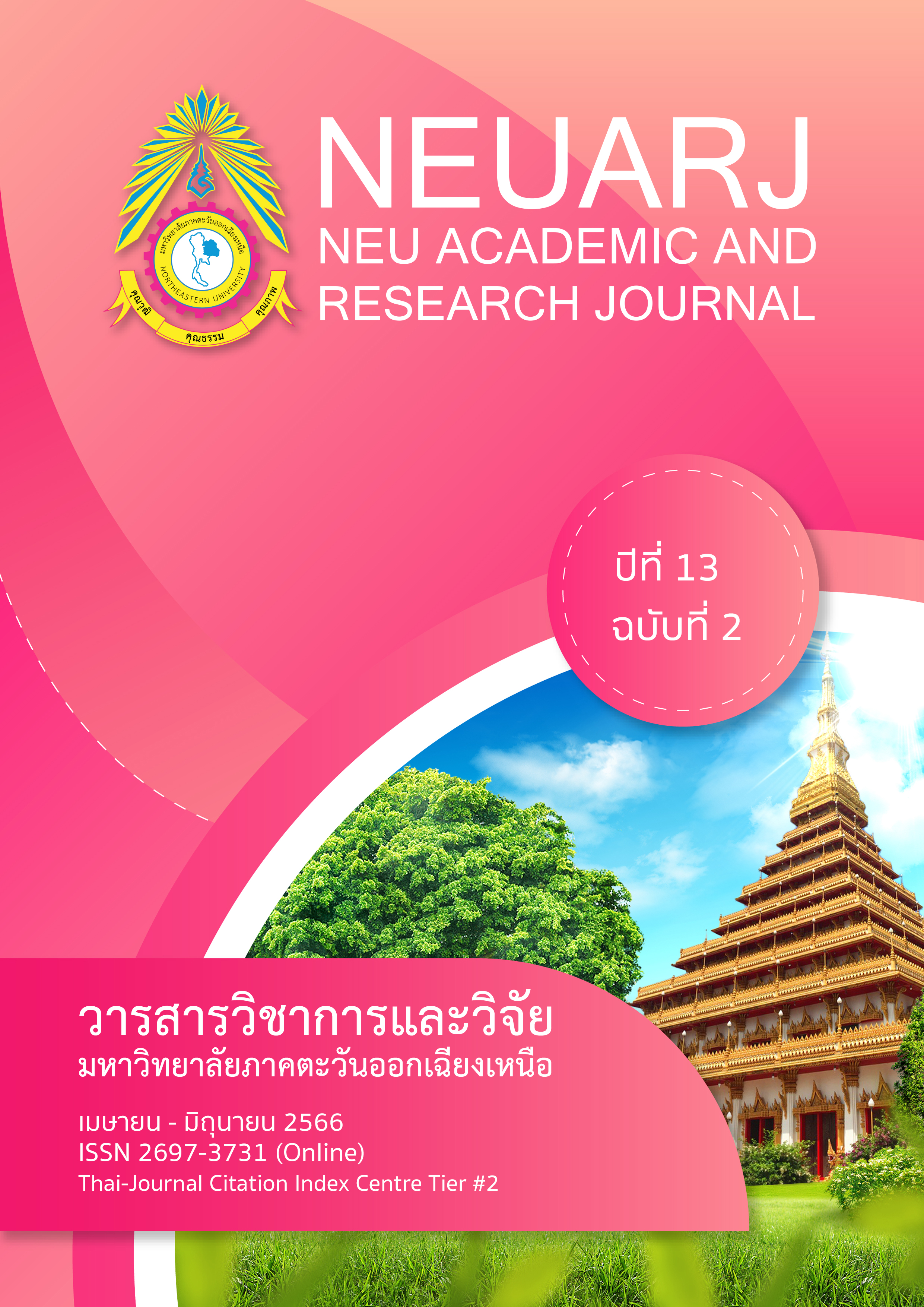The importance of English in Thai society and in technology
คำสำคัญ:
The importance of English, Thai society, Technologyบทคัดย่อ
The Thai government has to modify the progressive policy to reinforce global issues for developing countries as world economic development. In other words, if each country integrates the growth of the economy, it reduces the poverty of the population. Because the Thai government's efforts to promote the English language plays as the most significant tool for communication worldwide and it is expanded unstoppable by all users. Generally, Thai people are more interested in learning English which makes them easy to communicate with foreigners who come along with the growth of tourism, trade and investment. Moreover, it was obvious that English is used for education, economy, trade, technology, etc. The purpose of this article aims to describe two functions of English in Thailand both the importance of English in Thai society and the importance of English in technology. In this article, the author also proposed English users from different of various purposes such as the importance of technology (CALL) program that is a kind of the technological teaching aids for teaching foreign languages around the world.
เอกสารอ้างอิง
Bachman, L. (1993). What does language testing have to offer?. State of the art TESOL essays: Celebrating 25 years of the discipline. Illinois: Teachers of English to Speakers of Other Languages, Inc.
Bordbar, F. (2010). English teachers’ attitudes toward computer-assisted language learning. International Journal of Language Studies, 4(3), 27-54.
Darasawang, P., & Srimavin, W. (2006). Using a lecture and tutorial approach in teaching large classes. Reflections: KMUTT Journal of Language Education, 9(0), 41-49.
Davies, A., Hamp-Lyons, L., and Kemp, C. (2003). Whose norms? International proficiency tests in English. World Englishes, 22(4), 571-584.
Hashemi, M., & Aziznezhad M. (2011). Computer Assisted Language Learning Freedom or Submission to Machines?. Procedia-Social and Behavioral Sciences, 28(0), 832-835.
Horey, P. (1991). Some economic aspects of the use of English in the Thai tourism industry. Journal of Asian Pacific Communication, 2(1), 155-174.
Intratat, C. (2004). Evaluation of CALL materials for EFL students at KMUTT, Thailand. King Mongkut’s University of Technology Thonburi Research Journal, 4(0), 411-426.
Khamkhien, A. (2010). Thai learners’ English pronunciation competence: lesson learned from Word Stress Assignment. Journal of Language Teaching and Research, 1(6), 757-764.
Lalana, S. (2010). A study of the relationship between using the internet behavior and English proficiency of Matthayom suksa 5 students in Muang district, Nakhon Sawan province. Journal of Humanities Naresuan University, 7(3), 99-114.
Ministry of Education. (2008). The basic education core curriculum B.E. 2551 (A.D. 2008): Bangkok: Khrurusapha Press.
Ministry of Education. (2012). The role of education in building an ASEAN community 2015: Bangkok: Khrurusapha Press.
Office of the basic education commission (2012). The integration of mobile computing (Tablet) to enhance teaching. Bangkok: Office of the basic education commission.
Pinner, R. S. (2012). Teachers’ attitudes to and motivations for using CALL in and around the language classroom. Procedia-Social and Behavioral Sciences, 34(0), 188-192.
Prapphal, K. (2003). English proficiency of Thai learners and directions of English teaching and learning in Thailand. Journal of English Studies, 1(1), 6-12.
Rhekhalilit, K., & Lerdpaisalwong, S. (2019). The increasing role of English in Thai academic publications. Manusya: Journal of Humanities, 22 (3), 335-357.
Saengsongfah, A. (2011). Development of an EFL language testing training syllabus to enhance secondary school teachers’ knowledge & skills in classroom testing and assessment. Veridian E-Journal SU, 4(1), 548-563.
Teeler, D., & Gray, P. (2000). How to use the internet in English language teaching. Harlow: Pearson Education Limited.
Thaphech, T., & and Surasith, N. (2023). Factors affecting English proficiency testing according to CEFR criteria of personnel and students of Northeastern University, Khon Kaen Province. NEUARJ: NEU Academic and Research Journal, 13(1), 143-153.
Thompson, J. L. (2011). An evaluation of a university level English for tourism program. Unpublished master’s thesis, Payap University, Chiang Mai.
Wangsotorn, A. (1980). Thailand. In R. B. Noss (Eds.), Language teaching issues in multilingual environments in Southeast Asia (pp.177-180). Singapore: Regional Language Centre.
Wiriyachitra, A., & Keyuravong, S. (2002). ELTeCS December 2002 info Thailand. London: British Council.
Wongthon, Y., & Sriwanthana, S. (2007). Learning English outside the classroom: Case study of tuk-tuk drivers in Phranakhon Si Ayutthaya. International Education Journal, 8(2), 433-448.
Zhiying, Z., Teo, A., & Laohaririyanon, C. (2007). A Comparative Study of Passive and Active Vocabulary Knowledge of Prince of Songkla University and South China Agricultural University EFL Learners. Humanities and Social Sciences, Prince of Songkla University Research Journal, 3(1), 120-152.

ดาวน์โหลด
เผยแพร่แล้ว
รูปแบบการอ้างอิง
ฉบับ
ประเภทบทความ
สัญญาอนุญาต
ลิขสิทธิ์ (c) 2023 วารสารวิชาการและวิจัย มหาวิทยาลัยภาคตะวันออกเฉียงเหนือ

อนุญาตภายใต้เงื่อนไข Creative Commons Attribution-NonCommercial-NoDerivatives 4.0 International License.


